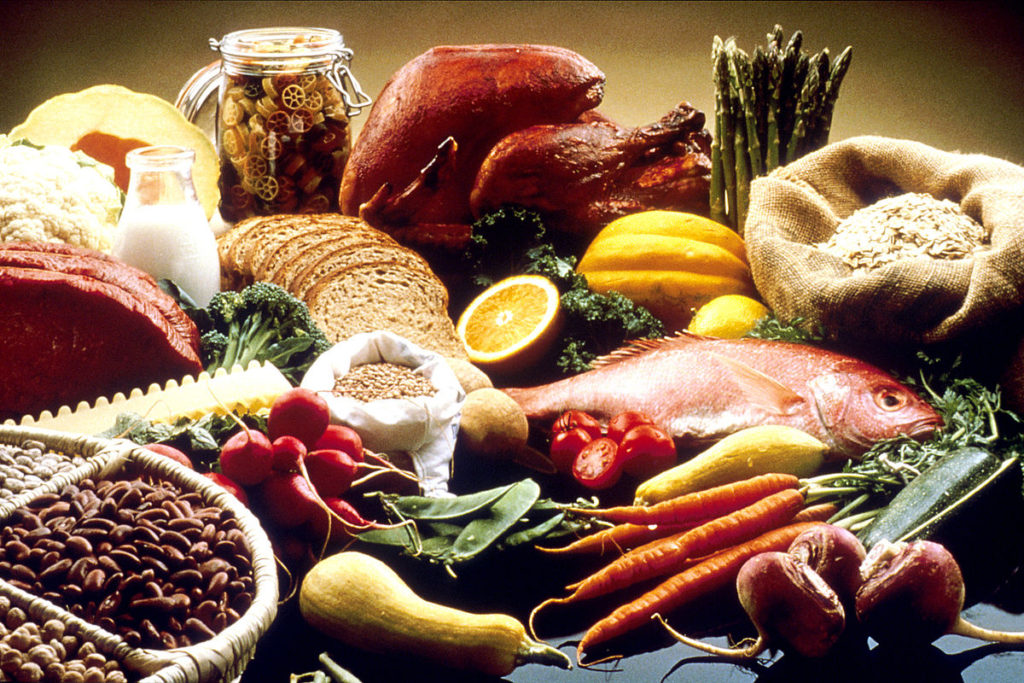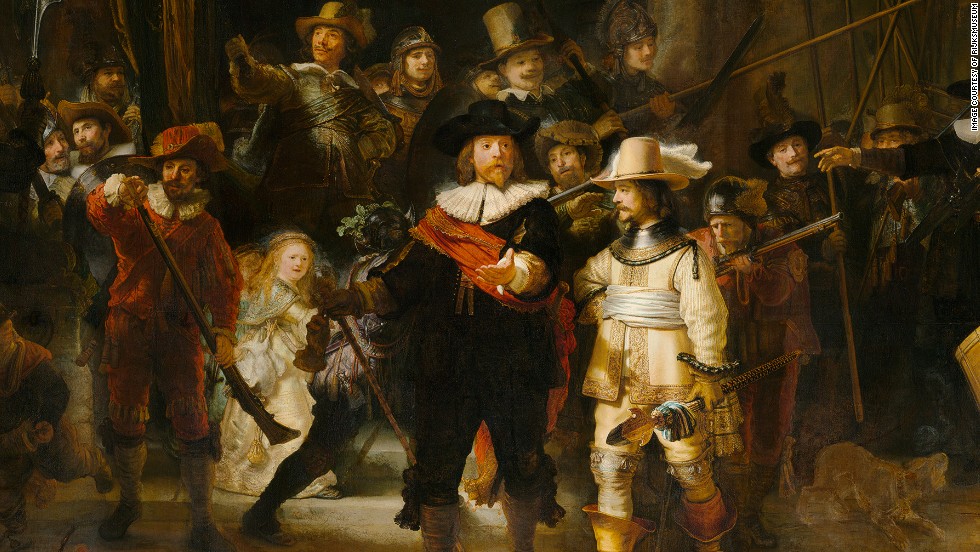
Perhaps I should have titled this post “Why You Shouldn’t Blog While Hungry.”
I was having lunch today and wound up randomly thinking of jalapeño-and-egg sandwiches, which in turn made me think of Kirsten from the Division Zero series. Ever since I wrote in that she’d developed a fondness for them, I’ve associated that food to her character.
From a development standpoint in writing, adding the little details to a character often helps deepen their reality for the reader. Small quirks such as a favorite meal add a bit of normality to characters. I once had a reader comment about Althea from Prophet of the Badlands. In one scene, she’s stuffing enchiladas, so she wants to keep her hands ‘food clean.’ When her leg itches, she scratches it with her foot. That minor action resonated with a reader enough for her to comment on it, specifically a character who by all rights is beyond a normal person (strong paranormal abilities) doing something like that – so mundane – that it made her relatable and real.
This of course got me thinking about the various main characters (and primary support characters) in my novels. I gave a bit of thought to what their favorite foods are (since I happened to be eating lunch while thinking around this idea). The result of this is a little ramble about my characters and what they like to eat.
(Yes I was hungry while writing this.)
So, without further delay, here is a list of my characters, the series or book they appear in, and their favorite foods.
- Aaron Pryce (The Awakened) – Fish and Chips
During his days playing for the Arsenal Frictionless Club, a rather impressive fish and chips wagon frequented the area around the stadium. Aaron has been on a quest for F&C that’s anywhere near as good as what the old man with the cart made, but has yet to find anything close.
- Althea (The Awakened) – Chicken Enchilada
Chicken Enchiladas are the first meal she had after being taken in by Karina and Father. After spending half her short life enslaved for her healing powers, eating them always reminds her of being welcomed into their home and having a real family.
- Anna Morgan (The Awakened) – The English Breakfast
Anna ran away at twelve, forced to live on the streets of London after accidentally killing her father when her electrokinesis lashed out defensively during a drunken beating. She had few happy memories growing up. Her friend Penny begged, wheedled, and scammed enough money to somewhat routinely provide them both “the full English” most days. (At the time, it was the extent of her ability to cook). The elaborate breakfast always makes Anna think of the happier times she’s had.
- Aurora (The Awakened) – Escargot
Much of what Aurora does is motivated by her love to make people around her uncomfortable. She adores the way people squirm while watching her eat it.
- Bethany Dalen (Tales of Widowswood) – Cherry Pie
Emma’s mother has never grown out of her fondness for Nan’s cherry pie. While not technically a “meal,” it is her favorite food item.
- Christopher McCullough (The Summer the World Ended) – SpaghettiOs
Much to Riley’s abject horror, her father lives as a recluse in the vast open nothingness of New Mexico. His cabinets are packed full of Spag-Os, which he likes for their ease and simplicity. He’s also rather fond of the taste.
- Eldon Church (Virtual Immortality) – Crawfish Etouffe
A dish his grandmother served when he was growing up, and still makes once a year at family gatherings. During his time in the UCF Military, many of his platoon mates called him “Toofey” for his constant grumbling about not being able to have this dish.
- Emma Dalen (Tales of Widowswood) – Nan’s Stew
A family recipe that’s been around for a few hundred years, Nan’s cooks-all-day stew is her favorite both for the flavor, for the way it warms the whole house with its fragrance, and because her grandmother made it.
- Evan Wren (Division Zero) – Grilled chicken (with loads of black pepper).
It’s the first meal that Kirsten attempted to cook for him (and one of the few her nascent cooking skills don’t butcher).
- Father Antonio Molinari (Chiaroscuro) – Steak
A good steak dinner was always high on his list of pleasant meals, but it elevated to a state of fond longing after he became a vampire and could no longer partake.
- Genna (Faded Skies) – Mac and Cheese
During her time with the 494th Night Terrors in World War III, Genna returned to base after a harrowing mission she felt certain would kill her. Upon heading to the mess, she found the freshest thing available to be a tray of mac and cheese. Ever since, the simple dish has become like eating “holy shit I’m alive” in physical form.
- Joey Dillon (Virtual Immortality) – Stage Three OmniSoy
From his years living low in the grey zones, Joey developed a taste for “the dreaded third stage.” When the molecular rearrangement of OmniSoy starts to break down, the food devolves into a puddle of tasteless slime. When enough time passes after that, it congeals into a cheese-like substance known as (by Joey) – the third stage.
- John “Jack” Pope (Faded Skies) – Grilled Rat
After years of living in underground tunnels between the Sanctuary Zone and the Habitation District, Pope has gone from eating rat to survive to becoming fond of it. In addition to liking the taste of grilled rat meat, it represents his independence from both the high and the low end of “established society.”
- Kate Solomon (The Awakened) – Double Orbital
With her insane metabolism due to her out-of-control pyrokinetics, Kate needs to eat about three times as much as a normal person not to starve. Since she is stuck living in bad parts of town, the fast food chain CyberBurger provides her most frequent source of meals, and her favorite: the double orbital – a two-patty monstrosity with all the trimmings.
- Katya Volkov (Virtual Immortality) – Italian
Much of Katya’s childhood was spent as a ward of the OOI (Office of Operational Intelligence, the ACC’s military intelligence group), being trained as a “ghost” or spy. For years, she had no ‘favorite’ food, having a guaranteed (if plain) – meal at all felt like luxury. After defecting to the UCF, she’s developed a fondness for Italian food, especially if it is loaded with garlic.
- Kenny Marlon (Virtual Immortality) – Campfire cooking
Kenny’s favorite eats are simple. He lacks the patience for “fancy” dining and much prefers to grill something himself over an open fire out in the Badlands.
- Kerys Loring (Wayfarer: AV494) – Chicken Parmesan
While attending UC Berkeley for Xenoarchaeology, Kerys spent many long hours sitting at a table in “Saint Vito’s Pizza.” A fan of chicken parmesan sandwiches since her early teens, she almost always had one while studying.
- Kevin (Roadhouse Chronicles) – Wayne’s Roadkill Burger
Long hours spent on the road driving other people’s crap between settlements always ends best at Wayne’s Roadhouse in Hagerman, New Mexico, where he can enjoy a “roadkill burger” cooked by the android Bee. He especially loves mashing French fries into his mouth while chewing on the burger.
- Kirsten Wren (Division Zero) – Omelet sandwich with jalapenos.
Nicole (her friend) – suggested it once, and initially, Kirsten was hesitant at the idea of mixing jalapenos with eggs. After trying it, she’s become hooked.
- Kitlyn (The Eldritch Heart) – Servant’s Feast
A servant girl in the castle, Kitlyn’s options for food have been rather limited, though among her narrow choices, she has come to adore “servant’s feast” the most, which is made of various leftovers that go together mixed into a stew pot. (Typically some combination of turkey, ham, beef, beans/peas, and bread.)
- Liam Dalen (Tales of Widowswood) – Cheese and Apples
Emma’s father’s favorite thing to eat is a breakfast of cheese, apple slices, muffins, and sometimes sausage. He loves stacking cheese atop apple slices and eating them together, which Emma cannot even bear to look at.
- Mamoru Saito (The Awakened) – Soba noodles
Mamoru is still a tween boy addicted to video games somewhere deep inside beneath the rigidity imposed upon him by being raised as a samurai. The noodles appeal to that part of him. Also, they lend themselves to being consumed fast, so he can get back to whatever he had been doing before needing to interrupt himself with food.
- Masaru Kurotai (Virtual Immortality) – Sushi
Masaru has expensive tastes, and often frequents the Toko Lounge, where he orders a spread of high-end sushi that can cost several thousand credits per serving.
- Maya Oman (Faded Skies) – Chicken Fingers
Despite possessing an unusual intellect and a high-school education by the age of nine, Maya is still only a child. After years of re-hydrated prepack meals, she has fried chicken fingers at The Hangar (a military-themed bar) – and discovers the meaning of addiction.
- Melissa Thomas (Nine Candles of Deepest Black) – Pizza
Paige’s eight-year-old sister, she is soft spoken, cute, and highly girly… unless pizza is involved, at which point she turns into a little red-haired Tasmanian devil.
- Nan (Tales of Widowswood) – Baked Ham
Emma’s grandmother’s favorite meal is baked ham, coated in enchanted herbs and seasonings and left to bake all day, best served with roast potatoes.
- Natalie Rausch (Caller 107) – Rotisserie Chicken
After the divorce, Natalie would visit her father once or twice a month at his high-rise apartment. Whenever she spent the night, her busy lawyer dad would usually pick up a pre-cooked chicken for dinner and they’d share it while watching movies.
- Nina Duchenne (Virtual Immortality) – Chicken Francaise
The dish got served at home somewhat frequently when she was growing up, and it is the first thing she cooked for Elizaveta.
- Oona (The Eldritch Heart) – Roast Turkey
As princess of the Kingdom of Lucernia, Oona has never known want for anything (except freedom from her obligations and a life without fear of assassins). Her favorite meal is Turkey, specifically drumsticks. Castle rumor holds that if turkey is served and she winds up not getting a drumstick, at least one servant will wind up reassigned to shoveling out the stables.
- Paige Thomas (Nine Candles of Deepest Black) – Hot Pockets
They’re quick, easy, and present an opportunity to dodge having to argue with her mother or deal with the fact that her mother often “forgets” to cook for Paige while feeding her little sister.
- Pavo Aram (Daughter of Mars) – Ramen
A long-time bachelor and officer in the Mars Defense Force, Pavo’s meal of choice is noodle bowls from any of the hundreds of vendors in Primus City. He does not have a particular favorite (shrimp, chicken, beef, pork, seafood) – as long as it’s got broth and noodles, he’s happy.
- Riley McCullough (The Summer the World Ended) – Baked salmon with capers
It’s the first “real” dish her mother taught her how to prepare. Of all the recipes in her cookbook, it reminds her the most of spending time with Mom.
- Risa Black (Daughter of Mars) – Bacon-mageddon
The giant egg-and-bacon sandwich is the first food she has in several years that was not generated out of OmniSoy. Kree finding her leftovers and adorably “stealing” them cemented the vastly unhealthy thing as her favorite.
- Sabine Caillouet (Chiaroscuro) – Toast with jam
Sabine has spent more years as a vampire than as a mortal girl (8), so she does not remember much of real food. She has developed a fondness for the way a good-natured woman’s blood takes on notes of fruit or sweet things in a vampire’s brain. However, one thing she does remember is having breakfast with her mother, which often consisted of toast spread with fruit jam.
- Sarah Hawthorne (Faded Skies) – Cheese Sandwich
Sarah’s father Billy is a veteran, and qualifies for the free cheese sandwiches provided as assistance. Living out in the Habitation District where most people wonder IF there will be food, not WHAT to eat, she’s developed a fondness for the self-warming mystery meal that inflates to a simple cheese sandwich on white bread when activated. A reliable source of nutrition, she likes it because it’s always there for her and it also reminds her of Dad.
- Triss (Roadhouse Chronicles) – Dust Hopper
Growing up in the Enclave, where 95% of all food is vegetables, Triss became quite sick of sautéed vegetables, salad, vegetable stew and a dozen different permutations of squash. Soon after finding herself out in the Wildlands, she got a taste of Dust Hopper meat (think a massive rabbit) – cooked over an open flame. For being her first substantial meal that did /not/ consist of vegetables, she’s developed a fondness for it even if most people out there consider it “what people eat when they ain’t got nothin’ better.”
Well, now that I’ve written this, and re-read it a few times… I made myself hungry again. Happy reading!
/wanders off to have a snack.





